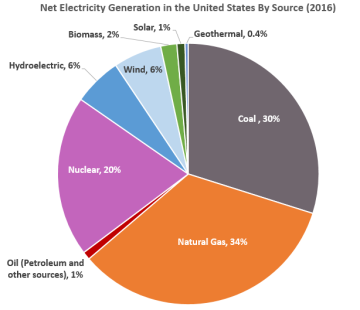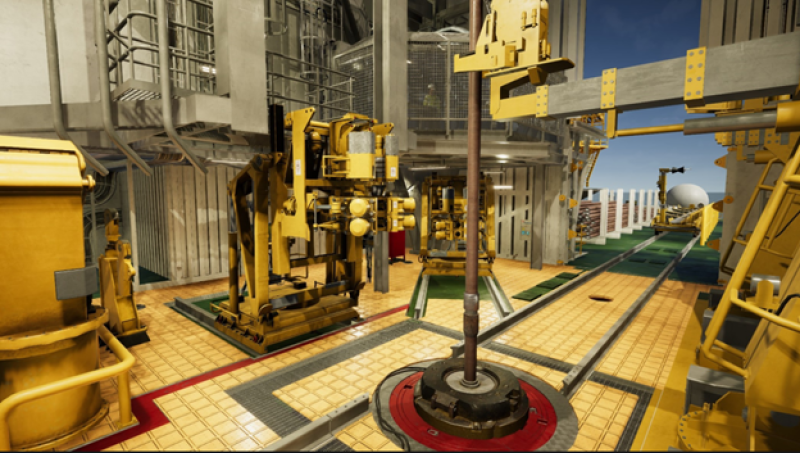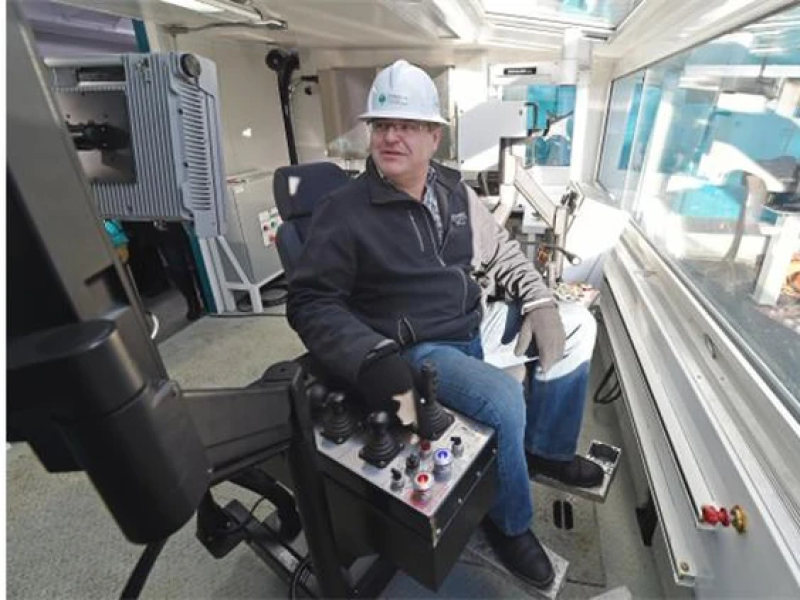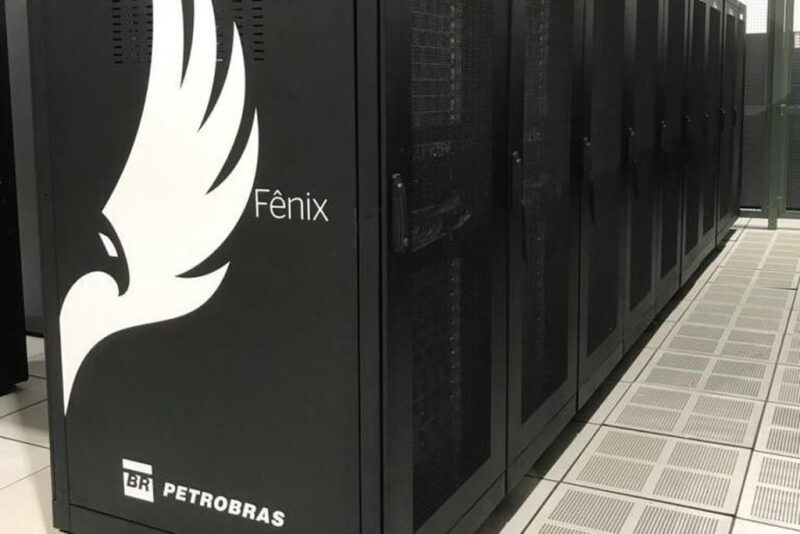Society of Petroleum Engineers (SPE) young professionals’ magazine, The Way Ahead (TWA), has been a pioneer source of information for young professionals who have recently joined the oil and gas industry or are pursuing degrees in petroleum engineering and related fields. However, we sincerely believe that the career starts from the interest that a student develops during school days, especially high school. This article is an attempt to introduce high school and middle school students to the world of petroleum and energy. I urge the readers of this article to share it with their family, friends, and acquaintances who are in school age.
Why Study Petroleum or Energy?
Energy is a basic human need. Apart from the energy we get from food, we need energy in our daily lives to heat/cool our homes and offices, cook food, supply water, drive, and run our computers, television, phones, watch, and machines. We are in need of energy to perform almost every single task in our daily lives. We get this energy in the form of crude oil products such as gasoline, diesel, and kerosene; natural gas; and through renewable sources such as wind, solar, hydro, and nuclear. Crude oil and natural gas energy cover almost 35% of total electrical energy that is consumed today in the US.

Energy is such an important aspect that it is obvious we need to learn more about it. The technical information for energy is covered in various engineering disciplines such as mechanical, chemical, electrical, and petroleum engineering. There are business programs as well which provide specialization in energy, such as Energy MBA. Just like any field, technical, managerial, and economic aspects require their own levels of study and degrees.
Getting into the field of energy can be through studying any field of technical discipline as stated above. So instead of answering how to get to this field, let us explain what you will get to do and what it takes to run the world of energy.
Since TWA is primarily a petroleum engineering magazine, let us talk about petroleum. Petroleum (Greek word “petra,” meaning “rock,” and the Latin word “oleum,” meaning “oil”) as a field of study, has several branches of its own, such as geology, seismic, geophysical, geochemistry, drilling, production, reservoir, pipeline, refinery, and chemicals. In terms of middle/high school curriculum, geology, chemistry, physics, mathematics, and maybe a little bit of basic biology is sufficient to understand the basic concepts.
The process of petroleum formation began millions of years ago when the carbon-based life forms such as phytoplankton, zooplankton, animals, and plants settled into the seas along with sand, silt, and rocks. They were buried under layers of rock sediments and crushed due to the weight. This is a slow and steady process which takes millions of years. This overburden creates a tremendous amount of heat and pressure which slowly cooks the carbon-based life forms into crude oil/ gas (reservoir engineers and geologists literally call this a kitchen). The oil then starts migrating away from this kitchen to a place where it gets trapped under an impermeable rock (such as a tight shale or a tight limestone). The crude oil/ gas is now present in the pore spaces of the rock under this impermeable layer. It is the task of the geophysicists, geologists, and geochemists to identify such locations and tell the drilling engineers to drill and produce oil. Once the reservoir is breached by drilling engineers, the production team takes over to ensure a smooth, steady, and controlled flow of crude oil/ gas to the surface.
What You Get To Do When You Work in the World of Petroleum
Petroleum engineering is an exciting engineering field with many appealing perks. Let’s see some of the top reasons why you should choose to work in this industry.
Travel. Travel is a huge part of the petroleum Industry. It is very common when working in the upstream part of the industry, which involves the exploration and production of crude oil. Working on geological surveys, seismic surveys, geophysical/geochemical surveys, and drilling can require traveling to the locations. It can include going to remote places, camping, helicopter rides, and staying in the middle of an ocean on a floating vessel.
Midnight in Winter Alaska. One of the advantages of working in the oil field is getting to travel to places I would dream about. I have always wanted to visit Alaska and I’m working here since April with the most awesome people. A huge temperature difference compared to the US Gulf Coast but I love the experience.

Petroleum engineering students also have travel opportunities to domestic and international work sites through field trips organized by their local SPE student chapter. This helps increase their industry knowledge and contacts.
Gadgets and Equipment. This is something that is present in every aspect of petroleum. The technology ranges from a simple slide rule to the pinnacle of human innovation.
As part of the industry, it is very common to work on geological expedition tools; seismic explosives and sensors; onshore and offshore drilling rigs; logging tools; production and completion tools; completion and artificial-lift tools; oil platforms; and floating ships that produce, store, and offload crude oil. You will also be working with latest in gadgets such as supercomputers and cloud data storage units.


Robots. Depending on how we define robots, you do get to work with them, and even in some cases build them. These robots can range from extremely sophisticated software to bots helping in physical activities such as lifting huge pipes, making connections, and diving into the sea to a depth of 3 miles to fix pipes.
Supercomputers. The amount of data collected during geological and seismic surveys is beyond the capability of a normal household computer system. There are supercomputers used to store, analyze, and view the data. The sheer volume, value, variety, velocity, and veracity of the data forces the engineers to use high-performance computing for analysis and storage. The industry is also slowly moving toward cloud computing.

Petrobras runs the biggest supercomputer in Latin America. Source.
Software. A big “Yes.” Software, just like in our daily lives, is a big part of the petroleum industry and is present in every aspect. This ranges from working on software to building software. Petroleum engineers are working all over the world in developing, building, testing, consuming, and providing feedback to improve software applications.

Real time monitoring of drilling. Source.
Innovation. The scope for innovation in the oil and gas industry is practically limitless. As petroleum engineering is more of an applied field, there is a requirement of tools for specific purposes. This calls for a solution that is specific to that requirement only. Having a closer look at every work scenario, every tool/ software/ solution was once started as an innovation to solve a problem.
Here are some interesting articles on innovation that were published in TWA. Readers are encouraged to read through these to learn more:
- Difficult Times Can Bring Out the Greatest Innovations
- Digital Transformation and the Impact on Human Collaboration
Artificial Intelligence. There has been an upsurge of machine-learning- (ML) and artificial-intelligence- (AI)-based solutions since the past 5–6 years. Many AI and ML tools are being applied to every discipline of petroleum engineering and are already proving to be a tremendous help in increasing productivity. There have been exciting projects that have not only helped in improving value but also saved millions of dollars for the organization.
Here are some articles published in TWA related to AI. Student readers are strongly encouraged to research this field, which has a huge potential in the future.
- The Basic Elements of Artificial Intelligence and Recipe for a Successful Career Kick Start
- Artificial Intelligence and Data Mining: Enabling Technology for Smart Fields
Entrepreneurship. Again, a big “Yes.” Entrepreneurship is something that has always driven and inspired the petroleum world. Every big company was once started as a small startup and everyday there are ideas born which require the agility and perseverance of an entrepreneurial mind. Each year TWA honors young energy influencers who have shown to have gone above and beyond their capability as TWA Energy Influencers. This list of outstanding young energy professionals covers several entrepreneurs.
Here are some articles that readers can go through and get inspired by entrepreneurial stories:
- Young Entrepreneur Spotlight: TechUSI CEO Duc Lam on ‘Physics-Based Forecasting for Best Type Curves’
- Success Stories of Two Young Energy Entrepreneurs
It is not just that being employed directly in an oil and gas or energy-oriented organization that you can contribute to the energy industry. There are many indirect ways in which you can have an impact. Petroleum engineers are also employed in the fields of investment banking, NVIDIA Gaming, UI/UX Designing, drone piloting, national security research, mathematics, chemical engineering, structural engineering, mechanical engineering, robotics, electronics engineering, civil engineering, ocean engineering, environment, safety, and many more. The knowledge and skills developed in petroleum can also be extrapolated to outside oil and gas. Geothermal drilling and NASA drilling technology use primarily drilling engineering and similar technologies.
In a nutshell, energy and petroleum are extremely promising career opportunities with so much to offer. If you have a passion to learn, explore, discover, and innovate, petroleum and energy can support your needs.
Now a bigger question that still remains.
What About Sustainability, Renewable Sources, and Climate Change?
Petroleum serves a big part of energy for the entire world. Apart from gasoline (petrol) and diesel, it also serves as a vital source of other crude oil products such as LNG, naphtha, kerosene, wax, and heavy polymers. These are used in various applications which in turn provide almost everything around us. Everything we use in our daily life has crude oil in it directly or indirectly.
It is easier said than done to simply replace all the products of crude oil with alternate sources. Hence it is important to have more people learn about energy, petroleum, and utilization, so they can understand how to have an effective and efficient source of energy which can sustain the planet, climate, and human needs.
We hope this article helps students understand the petroleum industry and its role in our lives. We know that out there are bright young minds who will shape the future. We hope to inspire them to pursue their dreams by sharing a glimpse of what they can expect in a petroleum engineering career.
We recommend school students to reach out to the nearest SPE chapter or call an Ambassador Lecturer to their school for a one-on-one talk. The Ambassador Lecturer Program is an SPE initiative where young professionals visit universities and secondary schools in their region to disseminate information about the oil and gas industry, answer students’ questions, and share their professional experiences. There are several resources available online as well to quench the curiosity. Energy4me.org is one such website which serves as an excellent resource for understanding the foundations of energy.
We are looking for future scientists and engineers who will change the world we live in and want to help them in realizing and tapping their potential!


